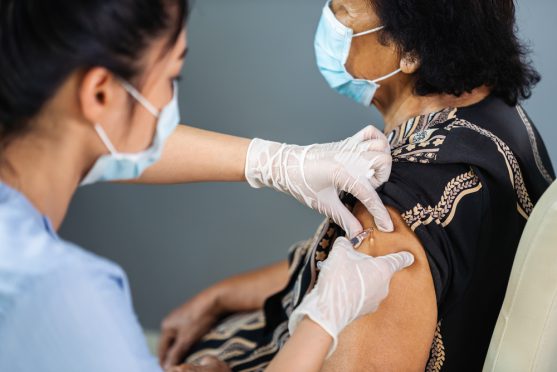For the last few months, many Indians have either been trying to get a vaccination slot, or recovering from the side effects of getting the vaccination shot. As more people are being vaccinated globally each day, a lot of discussions around the different vaccines, along with their comparative merits and demerits are taking place, both over social media and across news channels.
The importance of being vaccinated against COVID-19 is being publicised, as it is considered to be the only way to beat the large scale spread of this disease. It is recommended that Indians go for whichever vaccine is available to them, rather than wait for the vaccine of their choice.
Currently, in India there are two vaccines in supply: Covaxin and Covishield. While Covaxin is manufactured by Bharat Biotech, Covishield is from AstraZeneca, manufactured by Serum Institute of India.

It is expected that Sputnik V, a COVID-19 vaccine from the Gamalaya Research Institute of Epidemiology and Microbiology, will be available in the next few weeks to the public. In India, Dr Reddy’s Laboratories are supplying this vaccine & will start production in a few weeks.
Here we compare the two vaccines currently available in India, and one that is expected to be available soon.
| Features | Covishield | Covaxin | Sputnik V |
| Type of vaccine | Viral vector platform; a chimpanzee adenovirus has been modified to enable it to carry the COVID-19 spike protein into the cells of humans. This vaccine also does not contain any active virus, but can train the body’s immune system to fight the virus | Inactive viral vaccine; the vaccine does not contain any active virus which can cause infection, but it can train the body’s immune system to fight the virus. Other common inactive viral vaccines you may have used include the vaccines for polio and for rabies. |
A combination of two adenoviruses (ad26 and ad5), combined with SARS-CoV-2 spike protein
This vaccine too does not contain any active virus. |
| Dosage | 0.5 ml | 0.5 ml | 0.5 ml |
| Time gap between doses | 12 – 16 weeks | 4 – 6 weeks | 21 days (3 weeks) |
| Efficacy | 70% protection after first dose, 81.3% after second dose | 81% as per interim third phase trial results | 91.6% |
| Possible side effects |
|
|
|
Who should not take the COVID-19 vaccine?
All adults over the age of 18 years must take whichever vaccine is available to them. Even those adults who have diabetes, hypertension or other related problems can safely take the vaccine.
Cancer patients and cancer survivors can also take the vaccine, but must consult their treating oncologists about the best time in their treatment to take the vaccine. Certain cancer treatments can temporarily weaken the immune system. The treating oncologists can recommend the best time for taking the vaccine based on this information.
There is only one situation where the vaccine is not recommended: if the first dose of the vaccine has produced a severe allergic reaction, then the second dose is not recommended.
Here is some additional information on the two vaccines currently available in India:
It has been suggested that Covishield causes slightly more severe side-effects than Covaxin.
Can I get COVID-19 even after taking the vaccine?
It is still possible to be infected by COVID-19 after taking the vaccine. However, the vaccine reduces your chances of becoming seriously ill from the infection. The vaccine also reduces your chances of dying from this infection.
The vaccine improves your body’s immune response against the virus of COVID-19. Within two to three weeks of taking the second dose of any of the above mentioned vaccines, your risk of serious infection or death from COVID-19 is drastically reduced.
What happens if someone takes one dose each of different vaccines?
Although there have been news reports of this happening, no one can tell what the consequences of this would be. There are no studies yet on what will happen if vaccines are taken in Covishield & Covaxin combination.
It is advised that we stick to two doses of the same vaccination to be safe from any possible complications.
Is there a difference in the price of the vaccines?
The Government of India has capped the prices of the vaccines at INR 780 for Covishield, INR 1145 for Sputnik V and INR 1410 for Covaxin. This price includes taxes as well the INR 150 service charge for the hospitals that are administering the vaccines.
In government-run institutions, vaccines will be provided free of cost.
You can read more about how cancer patients can deal with COVID-19 here.
